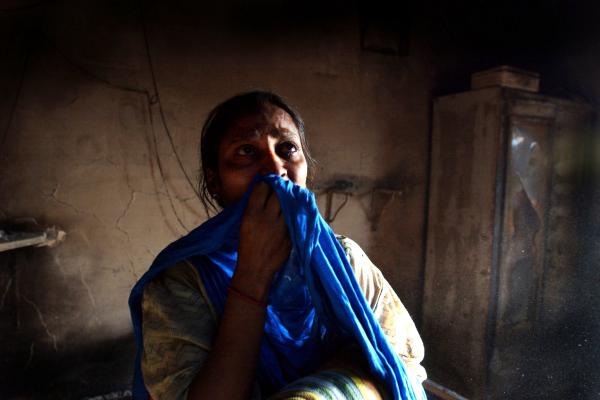When the United States dropped atomic bombs on the Japanese cities of Hiroshima and Nagasaki in 1945, the world was ushered into a period of weapons paranoia. The Cold War, of course, was hallmarked by the obsessive weapons one-upmanship of the United States and the Soviet Union.
Who, then, would have thought that in the 21st century, the seeming weapon of choice would not be some sort of super-nuclear missile or an ultra-deadly biological toxin, but that it would, instead, be women?
“Women are being used as weapons of terror,” Dr. Rubina Greenwood told an audience last week at a congressional briefing on the rights of minority women in Pakistan organized by the Hindu American Foundation.
Greenwood, the chairwoman of the International Sindhi Women Organization and vice chairwoman of the World Sindhi Congress, a human rights advocacy organization for Sindhis, spoke about the persecution of non-Muslim women by religious extremists in Pakistan — namely how they are abducted, forcibly converted to Islam, and given to Muslim husbands.
There are 2.7 million Hindus living in Pakistan — nearly 30 percent of the total population. Human rights groups in Pakistan report that as many as 25 women and teenage girls are abducted into the forced conversion-marriage system each month, mostly in the northern province of Sindh.
Currently, Hindu marriages are not legally recognized in Pakistan, although legislation is in the works to change this. However, right now, if Hindu women are abducted, there is no legal deterrent to a forced second marriage.
Furthermore, Greenwood said many abducted women, if they ever escape their new husbands, end up working in private brothels because their families will not take them back.
Greenwood believes the sexual violence against women is part of a larger policy of targeting religious minorities in order to pressure them to self-deport. And if that is indeed the case, the policy is working. In recent years, Hindus have been emigrating from Pakistan to India in droves.
In just one two-week period in August, more than 250 Hindus fled Pakistan for India. On Sept. 9, 171 Pakistani Hindus sought refuge in India, refusing to return to what they called religious persecution.
But the systematic use of sexual violence against women is hardly exclusive to Pakistan. Women around the world are being used as weapons in larger ethnic and sectarian conflicts.
The Janjaweed’s prolific use of rape as a weapon of war in Sudan’s western province of Darfur is a sadly familiar topic. Just a year after violence erupted in the area between rebel groups and the Sudanese army in 2003, Amnesty International reported that the government-backed Janjiweed militia regularly raped women as part of their war strategy. In that first year, hundreds of women and young girls were publicly raped, and many others were abducted and given to soldiers as sex slaves.
In Colombia, sexual violence has been used extensively as a weapon for almost half a century. All factions of the nation’s civil conflict use rape both as a means of attack and as a means of retaliation.
And although it is estimated that two women are raped every hour in Colombia, the rapists are rarely prosecuted — especially if they are members of the military.
Using women as military and political tools is objectification at its basest level. Women’s bodies are not collateral. They are not pawns for negotiations. And they most certainly are not weapons of terror. Only when we begin to understand this — both domestically and internationally — can we ever hope to build truly democratic and equal societies.
Dawn Araujo is editorial assistant at Sojourners magazine.
Got something to say about what you're reading? We value your feedback!
